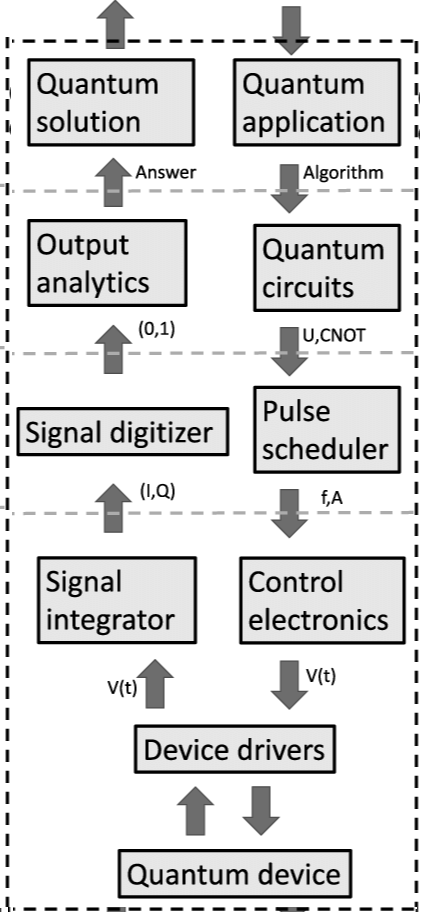The Role of Quantum Physics in Quantum Computing
Quantum physics plays an inportant role in the emerging field of quantum computing, offering a paradigm shift in how we process information. At its core, quantum computing leverages the unique properties of quantum mechanics, such as superposition and entanglement, to perform computations that are beyond the reach of classical computers. These phenomena enable quantum computers to tackle complex problems, such as drug discovery, materials science, and cryptography, with unprecedented speed and efficiency.
Key Principles of Quantum Computing
Quantum computing leverages the principles of quantum mechanics, which is a branch of physics that studies subatomic particles. The critical principles involved are:

1. Superposition
In classical computing, bits represent either 0 or 1. However, in quantum computing, qubits (quantum bits) can exist in multiple states simultaneously. This ability, known as superposition, allows quantum computers to process multiple computations at once. Imagine a spinning coin: while it's spinning, it can be both heads and tails. Similarly, a qubit can be in a state that is a combination of 0 and 1 simultaneously.
2. Entanglement
Entanglement is a phenomenon where pairs or groups of particles can become interconnected in such a way that the state of one particle instantly influences the state of the other, no matter the distance between them. This "spooky action at a distance," as Einstein called it, allows for correlated information processing. For example, measuring the state of an entangled qubit provides immediate information about the state of its partner.
3. Interference
Quantum interference is akin to the way waves interact with each other. Due to their wave-like properties, qubits can interfere constructively or destructively with other qubits. This interference is harnessed to amplify the correct computational paths and cancel out the incorrect ones.
4. Quantum Tunneling
Quantum tunneling allows particles to pass through barriers they normally wouldn't be able to, according to classical physics. This principle is essential for quantum computing hardware, like quantum dots.
Applications
The potential applications of quantum computing are vast and far-reaching. In the realm of drug discovery, quantum computers can simulate molecular interactions with unparalleled accuracy, accelerating the development of new medications and treatments for diseases. In materials science, they can model the behavior of materials at the atomic level, leading to the creation of novel materials with superior properties. In cryptography, quantum computers can break existing encryption methods, while also enabling new, more secure forms of communication. These are just a few examples of the transformative potential of quantum computing, which has the power to revolutionize various fields and shape the future of technology.
However, the development of practical quantum computers faces significant challenges. Maintaining the delicate quantum states of qubits is extremely difficult, as they are highly susceptible to environmental disturbances. This necessitates the use of sophisticated techniques such as error correction and isolation from external influences. Furthermore, building and programming quantum computers require specialized expertise and advanced technologies. Despite these challenges, researchers worldwide are making significant progress in overcoming these hurdles, and the field of quantum computing is rapidly advancing.
Advantages of Quantum Computing
- Speed:Quantum computers can perform complex calculations significantly faster than classical computers. For instance, Google's quantum computer, named "Willow," performed a computation in under 5 minutes that would take classical computers 10^25 years.
- Efficiency:Quantum algorithms take advantage of superposition and entanglement to solve problems more efficiently.
- Problem-solving:Quantum computing holds promise for solving complex issues in various fields including cryptography, materials science, and pharmaceuticals.
Challenges
Despite their potential, quantum computers face significant challenges:
- Error Rates:Quantum bits are highly sensitive to environmental factors which can introduce errors, known as quantum noise.
- Scalability:Building larger, error-free quantum computers is technically demanding and costly.
- Practical Implementation:While theoretically promising, many quantum algorithms are yet to be practically implemented on a large scale.
Conclusion
Quantum physics provides the foundation for quantum computing, a revolutionary technology with the potential to solve some of the most pressing challenges facing humanity. By harnessing the unique properties of quantum mechanics, quantum computers can tackle complex problems that are beyond the reach of classical computers, leading to breakthroughs in various fields such as drug discovery, materials science, and cryptography. While significant challenges remain in the development and implementation of quantum computers, the rapid progress in this field suggests that a quantum future may not be far off.